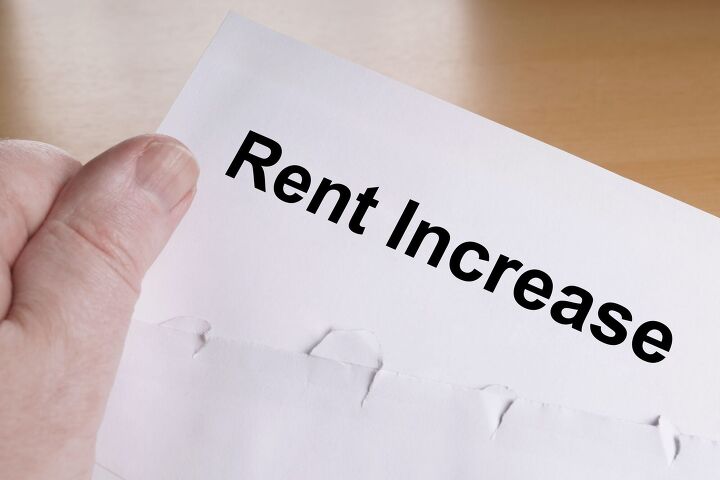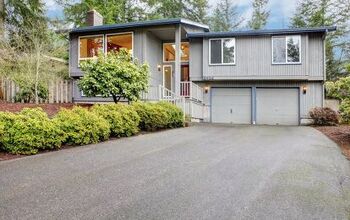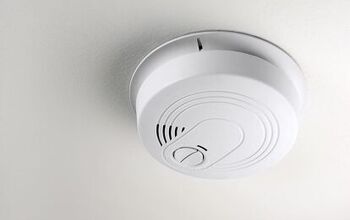How To Avoid Rent A Increase

Renting carries many benefits over owning a home, but it can also be quite frustrating. You must depend on your landlord to keep your apartment livable and affordable, and that’s not always possible. Understandably, many tenants struggle with how to avoid a rent increase.
The best way to avoid a rent increase is to sign a long-term lease for up to two years or more. Try to limit your maintenance requests and avoid asking for renovations, so it’s not too expensive for your landlord to maintain your apartment. Follow the rules of your lease and make your monthly payments on time to stay on good terms with your landlord.
Keep a good relationship with your landlord and neighbors, so you can negotiate a rent increase. Follow along as we explore how to avoid a rent increase so you don’t have to increase your cost of living.
Why Are Apartment Rents Raised Every Year?
Many landlords raise the rent for apartments every year to keep up with the cost of living. Inflation has increased in the past few years since the COVID-19 pandemic, and this has led to rent increases for many people. Your rent can also increase due to improvements made to your apartment.
In many cases, this is unavoidable. For example, it’s not up to you whether your landlord decides to renovate your apartment and install new flooring. They may take that opportunity to increase your rent even though you didn’t request the renovation.
Landlords may also increase your rent simply because they have deemed you a high-maintenance tenant. This is common for tenants who make maintenance requests quite often, and while it’s not fair, it’s possible.
How To Negotiate A Rent Increase
Negotiating a rent increase is all about polite communication and punctuality. The last thing you want to do is say something rude to your landlord just because they increase your rent. Let’s look at the best ways to avoid a rent increase and negotiate your rate.
1. Sign A Long-Term Lease
Long-term leases are the easiest way to avoid a rent increase. Ideally, you should sign a lease that lasts for at least a year. However, a two-year lease can ensure that you will pay the same rent for two years minimum. Month-to-month or short-term leases are convenient, but they also mean that your landlord is more likely to increase the rent earlier.
Long-term leases also often cost slightly less than month-to-month agreements when you initially sign the lease. When your lease is almost up, ask your landlord if your next agreement can be for even longer. They are unlikely to increase your rent by much, if at all ,when you request a long-term agreement after you’ve already been a tenant for a while.
2. Limit Maintenance Requests
While your landlord needs to fix problems in your home, you should consider which issues are worth calling them about. The more often they must send a maintenance crew to your home, the more likely they are to consider you an expensive tenant. Maintenance requests take time and money, especially if they happen frequently.
Because of that, you should figure out which maintenance problems you can take care of without help. You should still call your landlord about major issues, such as plumbing and electrical problems. However, basic things such as changing your furnace filter are easy and not worth calling your landlord.
Don’t hesitate to make a maintenance request during an emergency, but don’t rush to call over simple things that you could easily fix.
3. Follow The Rules
Lease violations won’t work in your favor when it comes time to negotiate rent. A landlord is unlikely to negotiate or show empathy if you have repeatedly violated the terms of the lease. This includes everything from smoking indoors and exceeding tenant capacity, to keeping pets in your home.
Make sure to carefully read the lease agreement and ask questions if you are unsure of certain rules. That way, you will understand what you can and cannot do. Not only can lease violations lead to a rent increase, but they can also be grounds for eviction.
4. Avoid In-Demand Locations
In-demand rental locations are fun and exciting, but they can also be quite expensive. Densely populated cities like Los Angeles and New York City, for example, carry higher rental rates than the surrounding suburbs. Highly-populated areas with many available rental locations are typically the most expensive.
You will pay a premium price when you first sign the lease, and your rental increases will be quite high as well. Sure, living in a bustling city is exciting, but you will pay a small fortune and experience high rent increases. Look for suburbs and affordable rentals near the city you want to live in to keep proximity and save money.
5. Be Punctual
Punctuality is everything when it comes to renting an apartment. Pay your rent on time each month to avoid penalties and to stay in your landlord’s good graces. Your landlord will take your punctuality into account when the time comes to change your rent.
You can use your previous punctuality as leverage when your landlord tries to increase your rate. Show your landlord that you have continually paid your rent on time for as long as you’ve been a tenant. This will work in your favor and hopefully show your landlord that you are a reliable tenant.
6. Team Up With Your Neighbors
If you live in an apartment complex, then chances are your neighbors will also experience a rent increase. In that case, it’s worth talking to your neighbors and seeing if you can team up with them to negotiate the rent. Strength in numbers is a true sentiment, and it can be a good idea to get together with the other tenants to see what you can do.
Whether it be visiting the leasing office or writing a group letter, you are more likely to sway your landlord when you have the support of your neighbors. Make sure to use gentle words and show your landlord some respect, as you don’t want to make them angry.
Your landlord isn’t guaranteed to change his or her mind, but they may decide to increase your rent by less than they initially planned.
7. Befriend Your Landlord
If possible, try to befriend your landlord to avoid a rent increase. This is difficult if you live in a large apartment complex, but it’s not impossible. However, you will have more luck if your landlord doesn’t manage too many properties.
Keep a positive and transparent relationship with your landlord, so you can establish some good faith. Your landlord is more likely to go easy on you and be considerate of your financial situation if you know them well. Whether it be sending them a card on the holidays or stopping to talk to them when you see them, it’s worthwhile to show your landlord that you care.
8. Look For Rent Control
Rent control limits how much and how often a landlord can increase your rent. States such as Oregon and California currently have rent control. While these states have a high cost of living, you don’t have to worry as much about unexpected rent increases.
Some states, such as Illinois, have no rent control at all. It can be hard to find municipalities and states with rent control, but it’s worth the trouble for stability.
What Is The Most A Landlord Can Increase Rent?
A landlord can increase your rent by as much as 10% each year in most cities and states. However, federal law doesn’t currently regulate how much a landlord can increase your rent. It’s ultimately up to your landlord, and rent increases typically go together with the economy.
Inflation leads to a higher cost of living, and this is often reflected in how much your landlord increases your rent. Luckily, your landlord is required to give you at least a 30-day notice before they increase your rate. There is sadly no limit to how much a landlord can increase your rent according to federal law, but reputable landlords are unlikely to increase your rate by an exorbitant amount.
Summing It Up
Sign a long-term lease and follow the terms of your rental agreement to avoid a rent increase. Make sure to be punctual with your rent payments and maintain a nice relationship with your landlord. If possible, take care of as much maintenance as possible without making a maintenance request unless there’s a serious problem.
Otherwise, you may want to consider moving to a city or state with rent control. Stay away from big cities with high populations as landlords are likely to increase rent each year by up to 10% or more in some cases.
Related Guides

Nick Durante is a professional writer with a primary focus on home improvement. When he is not writing about home improvement or taking on projects around the house, he likes to read and create art. He is always looking towards the newest trends in home improvement.
More by Nick Durante











![The 10 Best Table Saws - [2022 Reviews & Buyer's Guide]](https://cdn-fastly.upgradedhome.com/media/2023/07/31/9070645/the-10-best-table-saws-2022-reviews-buyer-s-guide.jpg?size=350x220)

![10 Best Electric Pressure Washers – [2022 Reviews & Guide]](https://cdn-fastly.upgradedhome.com/media/2023/07/31/9070600/10-best-electric-pressure-washers-2022-reviews-guide.jpg?size=350x220)
![10 Best Cordless Leaf Blowers – [2022 Reviews & Ultimate Guide]](https://cdn-fastly.upgradedhome.com/media/2023/07/31/9070789/10-best-cordless-leaf-blowers-2022-reviews-ultimate-guide.jpg?size=350x220)












